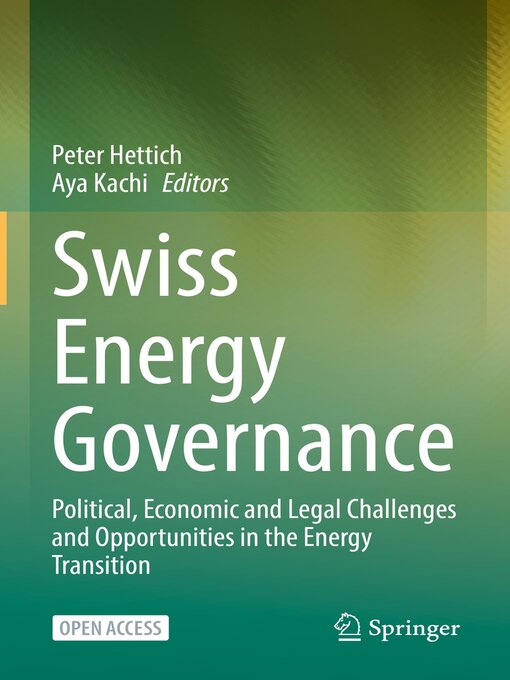This open access book gathers the results of an interdisciplinary research project led by the Swiss Competence Centers for Energy Research (SCCER CREST) and jointly implemented by several universities. It identifies political, economic and legal challenges and opportunities in the energy transition from a governance perspective by exploring a variety of tools that allow state, non-state and transnational actors to manage the transition of the energy industry toward less fossil-fuel reliance. When analyzing the roles of these actors, the authors examine not only formal procedures such as political and democratic processes, but also market behavior and societal practices. In other words, the handbook focuses on both the behavior and the positive and normative frameworks of political actors, bureaucracies, courts, international organizations, lobby groups, civil society, economic actors and individuals. The authors subsequently use their findings to formulate specific guidelines for lawmakers and other rule-makers, as well as private and public actors. To do so, they draw on approaches stemming from the legal, political and management sciences.
- English
- Español
- Français (Canada)
- 中文(简体)
- 中文(繁體)
- 日本語
- Русский
- Italiano
- Deutsch
- 한국어

